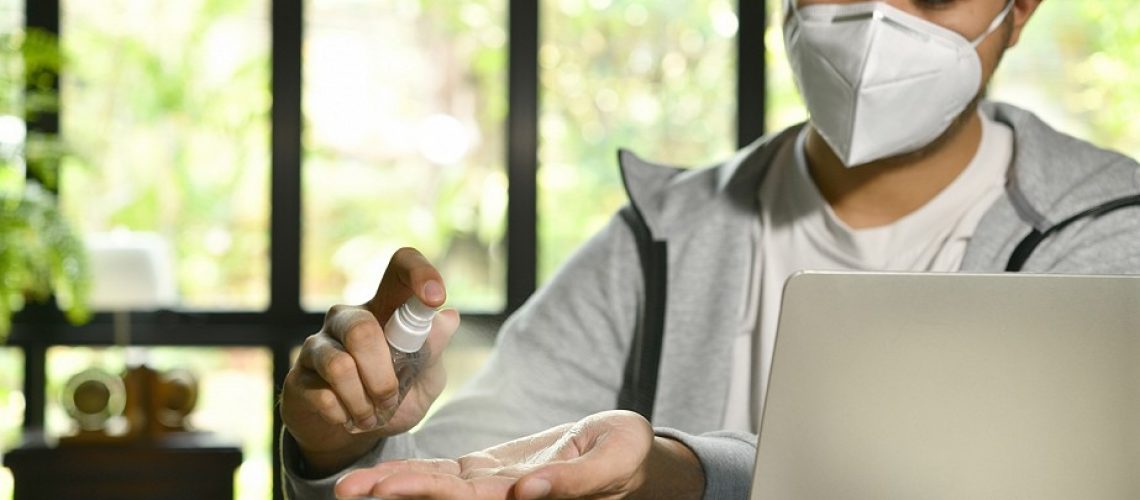As coverages and regulations continue to broaden, often on a day-to-day basis, guidelines related to the COVID-19 pandemic frequently open up additional factors to consider – for instance, issues with homebound patients.
Recent legislation, namely the Families First Coronavirus Response Act (FFCRA) and the Coronavirus Aid, Relief, and Economic Security (CARES) Act, implements specific provisions to COVID-19 diagnostic testing and services. Upon a review of the provided guidelines, homebound patientsfurther expand the landscape of needed consideration for coverage.
To clarify, the Centers for Medicare & Medicaid Services (CMS) defines “homebound” as a patient confined to the home, with it being medically contraindicated for the patient to leave home. When it is medically contraindicated for a patient to leave the home, there exists a general inability for an individual to travel, whereas leaving home safely would require a considerable and taxing effort.
The unique protocol for specimen collection as it relates to COVID-19 testing changes the landscape for billing of these services. During the COVID-19 pandemic, collecting specimens will require trained laboratory personnel.
The collection methodology is inclusive of NP, OP, or collection of sputum. Due to the contagious nature of this virus, additional precautions must be taken to minimize exposure risk in handling specimens that are suspected or confirmed for COVID-19. Due to this, it is believed that COVID-19 will incur a higher cost than other specimen collection services, which also require trained personnel, but without similar precautions.
An additional consideration regarding the collection of such specimens is the expeditious manner in which providers can identify and treat infected patients, to include the isolation and quarantine of those exposed to prevent further spread of the virus. Laboratory personnel will need training on how to handle specimens for accurate testing, while in turn taking precautions in protecting themselves and others.
With the time-sensitive nature of the many aspects of addressing the virus, speed of delivery in testing is imperative. Expediting the collection of the specimen once a person is identified for testing, regardless of the time of the onset of symptoms, must also be taken into consideration. This collection service would only apply if the specimen collection were provided by trained personnel. This guidance is unique, not currently mirrored with any other specimen collection procedure, and is an exception made for the public health emergency.
Two new Level 2 HCPCS codes have been established to identify specimen collection for COVID-19 testing. Independent laboratories must use one of these two HCPCS codes when billing Medicare for the nominal specimen collection fee for COVID-19 testing, for the duration of the PHE for the COVID-19 pandemic. These new HCPCS codes are:
- G2023, Specimen collection for severe acute respiratory syndrome coronavirus 2 (SARS-CoV-2) (Coronavirus disease [COVID-19]), any specimen source.
- G2024, Specimen collection for severe acute respiratory syndrome coronavirus 2 (SARS-CoV-2) (Coronavirus disease [COVID-19]), from an individual in an SNF or by a laboratory on behalf of an HHA, any specimen source.
The second Level 2 HCPCS code, G2024, was created to address the higher fee associated with collecting a specimen from an individual in a skilled nursing facility (SNF) or by a laboratory on behalf of a home health agency. As time goes on, there will be further guidance provided when these codes are no longer valid, and therefore terminated from the HCPCS file and the clinical lab fee schedule.
In addition to the creation of these two codes, consideration should be taken for independent laboratories when billing for travel allowance when there is inclusion of a pickup service. Code P9603 and the flat-rate travel allowance is addressed and described by HCPCS code P9604. There will be no requirement of paper documentation of miles traveled; however, laboratories must maintain electronic logs with the necessary information in a method that can be shared with Medicare Administrative Contractors (MACs).
This healthcare crisis is unlike any we have experienced, and the healthcare industry has been required to make drastic yet necessary changes to adapt to the COVID-19 pandemic in an expedited fashion. Keeping up to date with accurate COVID-19 coding and billing, and putting into practice continuous and specified training, can help organizations cope with the situation and better prepare for the unexpected.
——————————————————
Photo courtesy of: ICD10 Monitor
Originally Published On: ICD10 Monitor
Follow Medical Coding Pro on Twitter: www.Twitter.com/CodingPro1
Like Us On Facebook: www.Facebook.com/MedicalCodingPro







